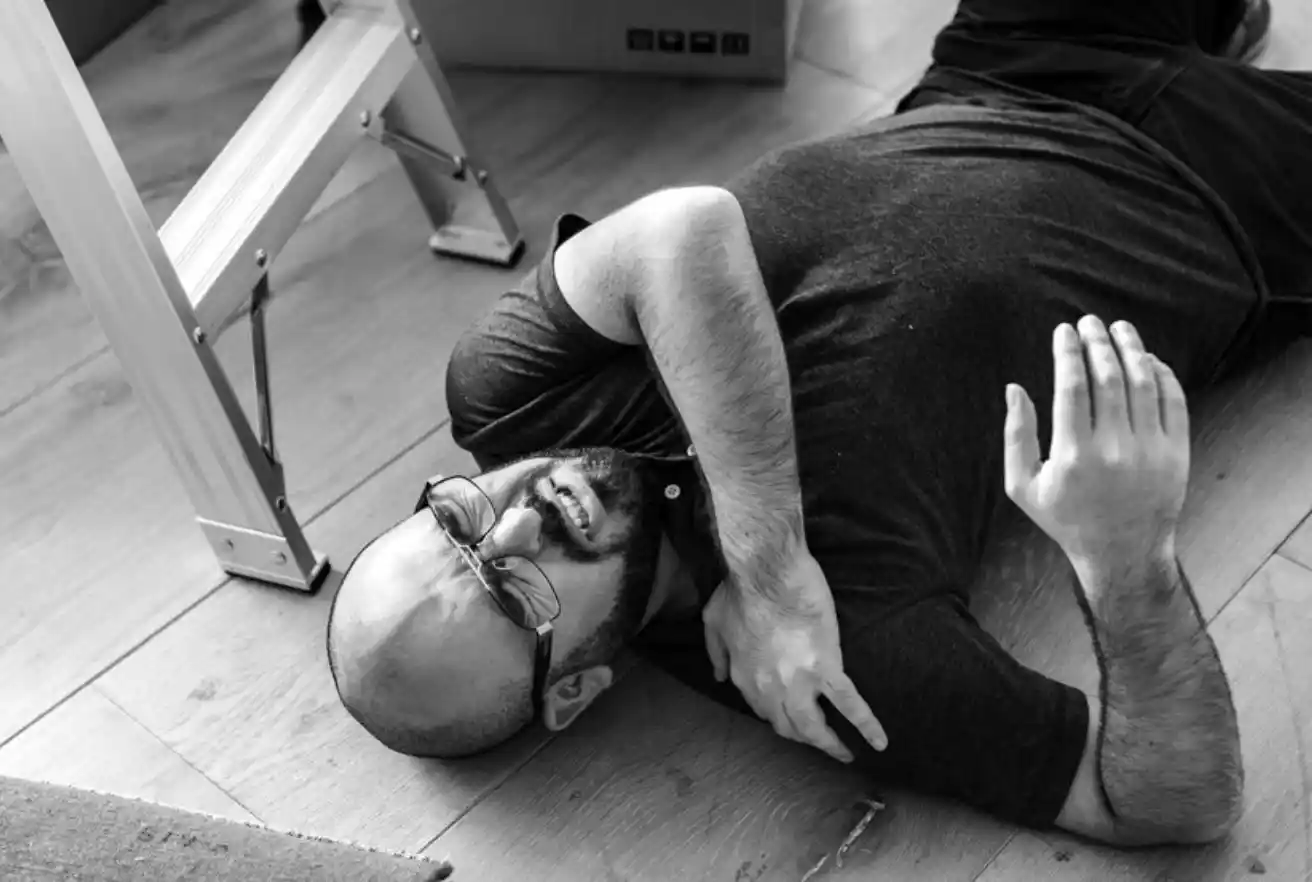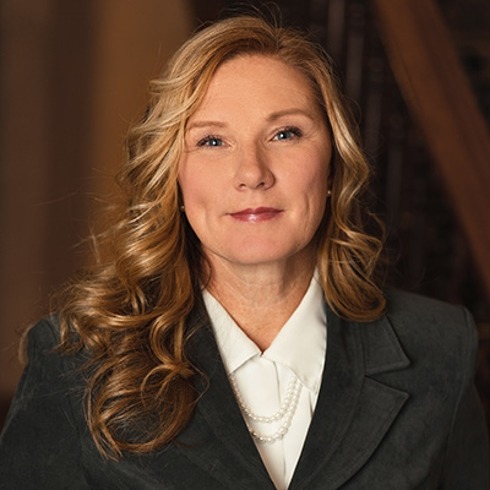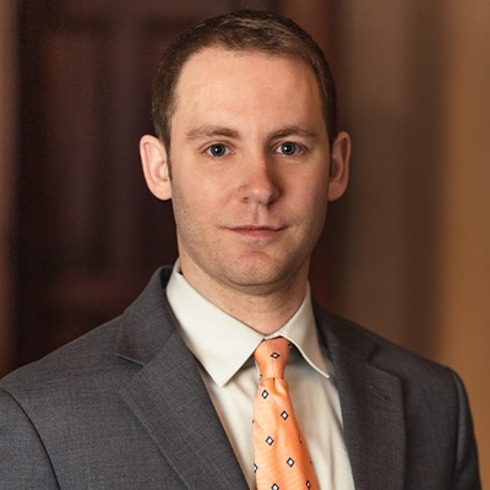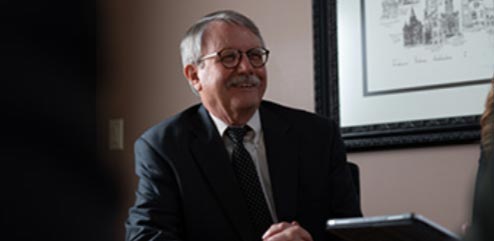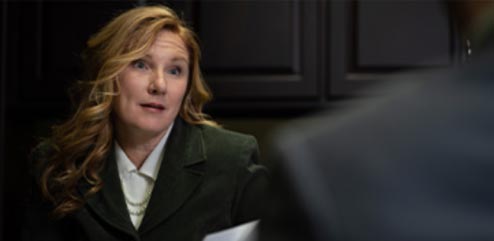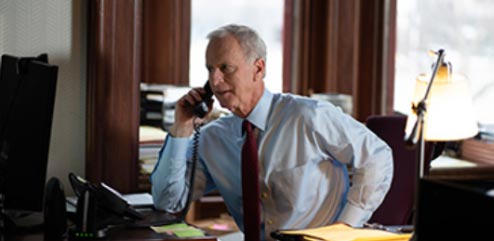Indianapolis Slip and Fall Lawyer
Helping people is our priority



Since 1993

Local & Trusted Premises Liability Lawyers
If you slip or trip and fall on someone else’s property, then you could be owed compensation for your injuries from that property owner. Christie Farrell Lee & Bell in Indianapolis can help you explore your legal options. Whether you slipped in a restaurant, retail store, grocery store, hotel, hospital, apartment, or parking lot, we can help. We have decades of combined legal experience working on serious injury cases, so you can trust us with your case, too.
Speak with a personal injury lawyer today. Call: 317-488-5500
Slip or Trip & Fall Hazards
Property owners owe visitors a duty of care that includes protecting them from slip and trip hazards. Before a visitor arrives on a piece of property, the owner, manager, or proprietor should inspect the area for anything that might cause someone to slip or trip. Failing to take this basic precaution could make the property owner fully liable if a visitor slips and suffers an injury.
Commonplace hazards that can cause a serious slip and fall accident include:
- Wet floors: Few things are worse slip hazards than wet tile floors, like a freshly mopped floor in a grocery store. Property owners and shift managers must make sure that any wet floors are marked with clear warning signs, so guests, customers, and visitors do not inadvertently wander onto the wet tile.
- Loose cables: In office buildings, loose cables and wiring can create unexpectedly dangerous trip hazards. Office managers and employers should keep all cords and cables bundled safely and out of any walking path.
- Uplifted carpeting: A lifted corner of carpeting or a clumped-up rug can catch a person’s foot and trip them. Noticing uplifted carpeting is difficult, too, because it tends to blend in perfectly with adjacent carpets. For this reason, even people who are paying full attention to their surroundings can accidentally trip on damaged carpeting.
- Damaged sidewalks: A cracked sidewalk is a dangerous hazard for pedestrians. When damaged sidewalk pieces cause someone to trip, the liable party could be a local government entity in charge of sidewalk maintenance, which makes for a complicated case. Hiring an attorney is highly advised.
- Dim lighting: The risk of tripping, slipping, or stumbling increases when walking through dimly lit areas. For this reason, property owners need to keep all areas open to the public or visitors well lit.
- Uneven steps: The risers and treads of a set of stairs need to be even and well maintained. If steps are uneven or damaged, then a visitor could trip, fall, and suffer serious injuries due to the property owner’s negligence.
Complete a Free Case Evaluation form now
Serious Injuries Caused by Slip & Fall Accidents
Slip and fall accident claims are sometimes dismissed by insurance companies as “not that serious.” The companies mistakenly believe or state that people can’t get badly injured if they just fall over. Unfortunately, this could not be further from the truth.
Some of the most common serious injuries are caused by slip and fall accidents. If someone lands awkwardly when they fall, then they could suffer a life-changing injury. In fact, one of the leading causes of preventable deaths among elders is falling down, especially when unsupervised in a nursing home setting.
Serious injuries caused by slip or trip and fall accidents include:
- Head injuries
- Back and spine injuries
- Broken bones
- Soft tissue injuries
If you lost a loved one to a slip and fall accident, then we are here to support you. Talk to our team about a wrongful death claim filed in their name, which can help you find closure, justice, and financial stability. By leaving the case up to our team, you and your family can focus on grieving.
Click to contact us today
Filling Out an Accident Report
After a slip and fall accident, it is important for you to notify the property owner as soon as possible. If you slipped in a commercial location like a retail store, then you should also consider filling out an official accident report. The accident report will let you mark down important details right away, so you do not risk forgetting anything. The report also makes it a challenge for the property owner to deny that the accident happened.
However, do not rush into filling out an accident report if you are not comfortable with the prompts or fields. You should also never sign an accident report or statement right away. If you have any doubts or questions about an accident report, you should speak with our slip and fall lawyers first.
Proving Liability After a Fall
To effectively prove liability after a fall, it’s vital to meticulously gather and present evidence that demonstrates the property owner’s responsibility. As your trusted personal injury attorneys, we focus on these key areas:
- Hazard identification: Documenting the specific unsafe condition that led to the accident, whether it’s a slippery floor or a broken stair.
- Owner knowledge: Establishing that the property owner knew or should have known about the hazard. This could involve maintenance records or incident reports.
- Failure to act: Demonstrating the owner’s negligence in not addressing the hazard in a timely manner, which could be shown through comparisons to industry standards or guidelines.
- Causation: Linking the hazard directly to your injuries, supported by medical records and expert testimony.
With our decades of experience, our personal injury lawyers can help you prove these elements successfully, handling each aspect of the process in your path to getting fair compensation.
Can I Recover If I Was Partially at Fault?
In Indiana, if you’re partially at fault for a slip and fall accident, you can still recover damages under the comparative fault rule. This rule allows for compensation as long as you’re not more than 50% responsible for the accident. However, your compensation will be reduced by your percentage of fault. For instance, if you’re found to be 30% at fault in an accident, and the total damages amount to $100,000, you would be entitled to receive $70,000.
This way, the law ensures that victims can receive some form of compensation even if they contributed to their accident, making it essential for slip and fall victims to understand their rights and the impact of their actions on potential recovery. In a free initial consultation, we can help you determine if you have a valid case, and discuss similar case results to establish realistic expectations on the compensation you can claim.
Four Basic Elements an Indiana Slip and Fall Lawyer Must Prove
To prove a slip and fall case in Indiana, our team of attorneys at Christie Farrell & Lee Bell must meticulously demonstrate four crucial elements, each grounded in principles of negligence and premises liability:
Duty of Care
Property owners are legally obligated to keep their premises safe for visitors. This duty includes routine inspections and maintenance to prevent hazardous conditions. When the duty of care is not met, property owners can be held liable for any accidents or injuries that occur due to unsafe conditions on their premises.
Breach of Duty
A breach occurs when property owners fail to uphold their duty of care. This can be through neglecting necessary maintenance or ignoring known dangers that pose a risk to visitors. For example, this includes not cleaning up spills promptly or failing to secure loose carpeting that could lead to a trip and fall.
Causation
For a claim to be successful, there must be a direct link between the breach of duty and the accident. This means proving that the negligence of the property owner directly resulted in the slip and fall incident. Demonstrating causation involves showing that the accident was a foreseeable outcome of the owner’s actions or inaction.
Damages
The final element involves proving that the victim suffered actual losses due to the accident. This includes both economic damages, such as medical expenses and lost wages, and non-economic damages like pain and suffering.
What is a “Reasonable” Time to Fix a Hazard?
At the root of many slip and fall accident claims is the question of whether the property owner “should have known” about the hazard. Premises liability law in Indiana requires property owners to address hazards within a “reasonable” amount of time, which will vary depending on the situation. In some cases, it is reasonable to expect the property owner to know about the hazard the moment it occurs, so it must be addressed right away. But in other scenarios, it might be reasonable for the property owner to not realize a hazard was there for hours, days, or longer.
Consider these similar yet importantly different examples about falling in a grocery store:
- Situation 1: A grocery store employee knocks over a carton of orange juice and walks away because they must tend the register. A minute later, a customer slips on the juice and gets hurt. The grocery store would likely be fully liable for the accident because an employee knew about the hazard immediately but did nothing to address it.
- Situation 2: A shopper in a grocery store drops a carton of juice down a different aisle but doesn’t tell a worker about it. A minute later, a customer slips on the juice. The spill was only there for a moment and was not made by a worker, so the grocery store might not have reasonably known about the hazard before the accident happened.
However, it is important to know that strict liability rules sometimes apply to slip and fall accident cases in commercial or retail settings. Under this legality, the property owner can be found liable for an accident on the property, no matter how long the hazard was there or who caused it. We can investigate your case to see what party is liable and how to best file a case against them.
Call Our Firm Now for Legal Help
Christie Farrell Lee & Bell and our Indianapolis slip and fall accident attorneys are here to help you with your case from start to finish. We know that this time might be confusing and difficult, especially when insurance companies complicate things. Let our dedicated team step in, take over, and make sense of everything for you. Whether your case is worth $30,000 or $3 million, we will take it to heart and do all we can to land the best possible outcome.
Slip & Fall Accident FAQ
- What should I do after a slip and fall accident?
After you have been in a slip or trip and fall accident, the first thing you should do is seek urgent medical care if you are badly injured. Prioritize your health and safety. Next, you will need to report the incident to the property owner, whether it is a store manager or a homeowner. Then, you will have to gather evidence that shows the hazard that caused you to slip and why it was not your fault. Ideally, you will be able to notify the owner and start taking pictures of the scene as evidence before you leave it. - Can I file a claim if I slipped at a neighbor’s house after I was invited?
Although many slip and fall accident claims are filed after accidents in workplaces like offices and retail stores, some involve accidents on residential properties. If you slipped at a neighbor’s house, you can still file a claim. In such a case, you would file against a renter’s or homeowner’s insurance policy, unless the liable party had neither. - Who is liable for an unsafe piece of city sidewalk?
A slip and fall accident case involving a piece of damaged sidewalk will create a complicated liability scenario. The city might be responsible for the maintenance of the sidewalk where you tripped, which would put your case against a municipal agency. Such claims usually have very brief statutes of limitations, so you should talk to our team soon. However, in some cases, the sidewalk’s condition is the responsibility of the nearest property owner. We can help you figure out what party should answer your injury claim. - Who is responsible for ice and snow removal?
Usually, a property owner must remove ice and snow from adjacent sidewalks and entryways in a timely manner to help prevent visitors from slipping and falling. The property owner can wait until when it is no longer snowing or hailing to clear the walkway. However, if a hazard on the property has made the snow or ice accumulation “unnatural,” then that can increase the property owner’s liability. For example, if an awning was damaged or missing and caused snow to pile up at the storefront entrance, then the property owner should act immediately to correct the situation. - I didn’t tell the grocery store about the spill before I slipped – does that matter?
A grocery store must clean up product spills as quickly as is reasonable, which could be only a few minutes. But if a spill happened only moments or minutes before, and no one told a worker about it, then the store could try to use that as a defense later if someone slips and files a claim. - Do building code violations matter for a slip and fall claim?
Your slip and fall accident claim could be improved if we can show that a building code violation caused your accident. Missing handrails near steps is a common building code violation, for example.
Indianapolis Office
951 N Delaware St Indianapolis, IN 46202
Phone: 317-593-9202

Get a FREE Case Review
Schedule Your Free Consultation



